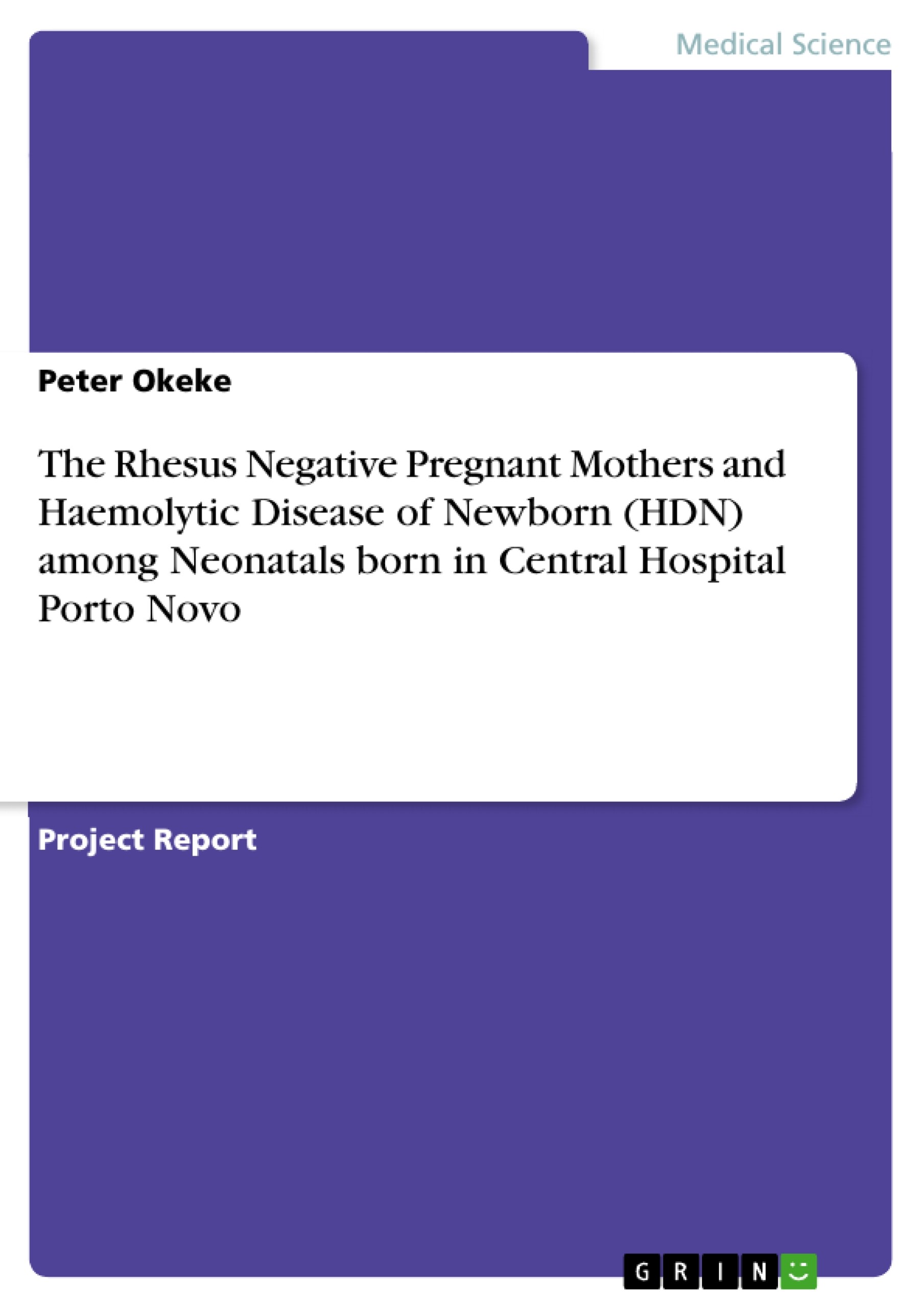The Rhesus Negative Pregnant Mothers and Haemolytic Disease of Newborn (HDN) among Neonatals born in Central Hospital Porto Novo
| Auflage | 1. Auflage, 2011 |
| Verlag | GRIN Verlag |
| ISBN | 9783640792658 |
Sofort zum Download (Download: PDF; Online lesen)
Produktbeschreibung
Project Report from the year 2010 in the subject Health - Public Health, , course: Blood Transfusion, language: English, abstract: A total of 27 blood specimen of neonates born at the maternity section of central Hospital Porto Novo by the Rhesus Negative mothers were studied for a period of 12 months. The specimen collection were done within 72 hours of birth, mothers pregnant for the first time without a past history of abortion or transfusion were rejected for the study. Ten (10) blood specimens of the neonates were Rhesus blood group negative and were eliminated from the work whereas the remaining seventeen (17) were recorded Rhesus blood group positive. The results of the 17 specimen of neonates all recorded in mean values showed Hb 17. 23g/dl, Hct 51.56L/L, the mean cell volume was 102.18 FL, mean cell hemoglobin concentration was 33.41% and mean cell hemoglobin recorded 34.12 pg. The red cell count and white cell count were 5.04 × 10 12/L and 16.06 ×10 9/L respectively. The platelet count was 316.53 and red cell distribution width of 17.76% was recorded. The differential leucocytes counts were; Neutrophils 65.35%, Lymphocytes 25.71% and MXD (comprises of monocytes, eosinophils and basophils) recorded 13.48%. The mean results of Bilirubin direct and Bilirubin total were 0.76mg/dl and 4.29mg/dl. The Direct Coombs test (DCT) was positive in one specimen of neonates and this specimen showed Hb value of 13.6g/dl and a total Bilirubin of 27.5mg/dl. All the neonates were of full term with birth weight of 2.5 to 3.5 kg. This work serves as an epidemiological vigilance for haemolytic diseases of the newborn in the Porto Novo province. The incidence of hemolytic Disease of newborn in Porto Novo district was recorded to be 5.8% considering from this work where only a case gave positive Direct Coombs. Although, this work suffers from scarcity of pregnant mothers of Rhesus blood group negative and affects the research because the specimen collected were small for the time period of the work. The Porto Novo experience also showed that good control system is at work by the medical team and technical staff concerned with the testing of all prospective mothers. Another positive aspect is that anti-D is freely and timely available for mothers of D- positive infants and with persistent effort in this regard, the incidence should continue very low or until there is no more case of hemolytic disease of the newborn.
